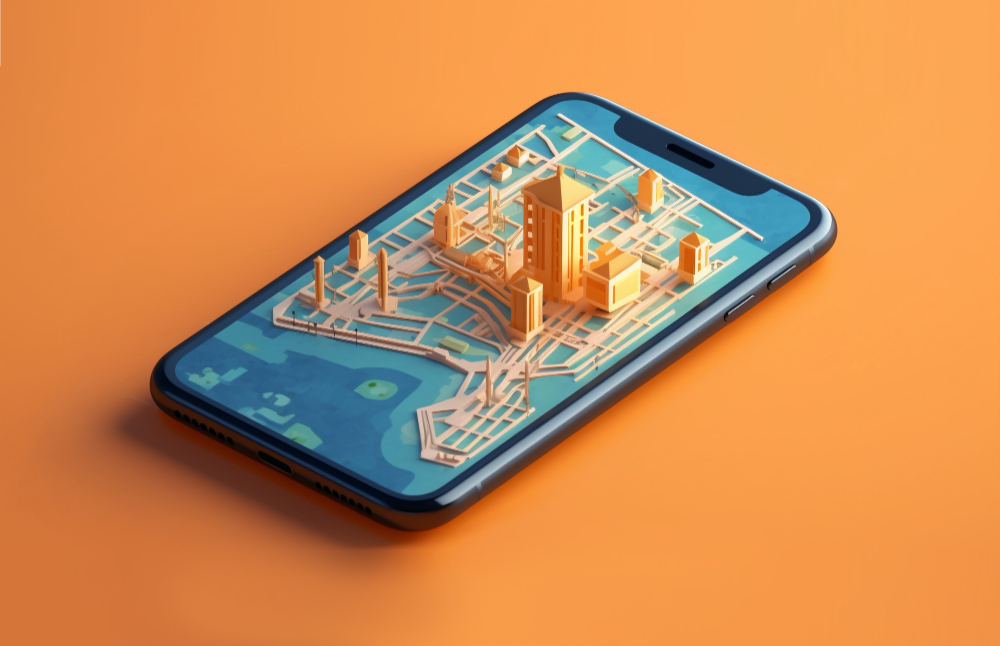New 25 Apr 2025
The Role of Mobile Apps in Supporting UAE's Smart City Initiatives

Introduction
The UAE is leading the charge in the Middle East with smart city transformations. From Dubai’s Digital Strategy to Abu Dhabi’s smart urban planning, mobile apps play a crucial role in enabling a seamless urban experience. For a mobile app development company in UAE, building apps that connect with smart city infrastructure is no longer optional—it’s a core capability.
In this blog, we examine how mobile apps are powering UAE’s smart cities, the technologies driving these innovations, and what businesses and governments need to know to stay relevant.
What Is a Smart City?
A smart city uses digital technology to improve the efficiency of services and meet residents' needs. It integrates information and communication technology (ICT) across public services, utilities, transportation, and more.
Why Mobile Apps Matter in Smart Cities
Mobile apps act as the interface between citizens and smart infrastructure. They offer real-time access to city services, utilities, emergency alerts, transport, and governance platforms.
UAE’s Vision for Smart Cities
Dubai Smart City Initiative
Dubai aims to be the world’s smartest city by digitizing over 1000 government services. Mobile apps are central to this push, offering services like bill payments, permits, transportation updates, and more.
Abu Dhabi Smart City Goals
Abu Dhabi focuses on sustainable urban development through smart infrastructure, environmental monitoring, and integrated public services—all managed through mobile platforms.
Other Emirates
Sharjah and Ras Al Khaimah are also investing in mobile technologies to improve urban mobility, healthcare, and citizen engagement.
How Mobile Apps Support Smart City Infrastructure
Real-Time Public Transport Updates
Apps provide live tracking for buses, metro lines, and taxis, reducing wait times and optimizing travel routes.
Smart Parking and Traffic Management
Apps help users locate parking spaces, pay via phone, and receive real-time traffic alerts.
Utility Management
Residents can use apps to monitor water and electricity usage, pay bills, and report issues.
Civic Engagement and Digital Governance
Apps allow residents to submit complaints, access public services, and participate in decision-making.
Emergency Services Integration
Apps connect users with police, ambulance, and civil defense services in real time.
Key Technologies Driving Smart City Apps
IoT (Internet of Things)
IoT sensors integrated with mobile apps provide data on weather, traffic, waste management, and more.
AI and Data Analytics
Smart city apps use AI to analyze data from users and sensors, optimizing everything from traffic lights to energy consumption.
Cloud Infrastructure
Cloud hosting allows real-time updates and scalability across city-wide systems.
5G Connectivity
Faster data transmission allows apps to deliver real-time updates with zero latency—critical for smart services.
Design Best Practices for Smart City Mobile Apps
Multilingual Support
Arabic, English, and other languages must be supported to ensure inclusivity.
Accessibility Compliance
Apps should meet accessibility standards so that people with disabilities can use them.
Offline Functionality
Some features should work even without internet access—for example, emergency alerts or downloaded transport maps.
Security and Privacy
UAE regulations require robust data encryption and compliance with local data laws.
Business Opportunities in the Smart City App Space
B2B Collaboration
Tech companies can partner with municipalities to develop city-wide solutions.
Real Estate and Smart Homes
Mobile apps for property management, maintenance requests, and IoT-enabled homes are in demand.
Green Technology
Sustainability-focused apps that track carbon footprints or manage energy use are gaining traction.
Tourism and Culture
Smart city apps that guide tourists through cultural landmarks and provide AR-enhanced experiences boost tourism.
How nDigital Supports Smart City Development
nDigital helps governments and private entities design scalable, user-friendly smart city apps. As a mobile app development company in Dubai, we understand the integration of technology, infrastructure, and user expectations.
Our smart city projects focus on:
-
Public transport solutions
-
E-governance platforms
-
IoT integration
-
Citizen service apps
Conclusion
Mobile apps are the linchpin in UAE’s smart city evolution. They provide residents and tourists with instant access to information and services, making urban living more efficient, connected, and sustainable. Businesses and governments must invest in mobile technologies today to be part of tomorrow’s digital city.




